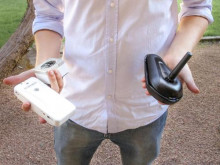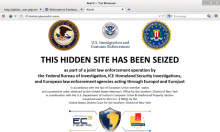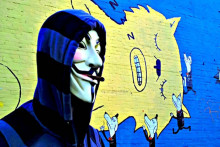FBI's most wanted cybercriminal used his cat's name as a password
When he was arrested at his Chicago home in 2012 for hacking the website of security think tank Stratfor, the dreadlocked Jeremy Hammond was the FBI's most wanted cybercriminal.
Authorities tracked him down with the help of top LulzSec member Hector Xavier Monsegur. But it has never been known how they managed to shut the lid of him computer, effectively encrypting the contents of Hammond's hard drive, which the hacker was able to encrypt as agents armed with assault rifles were raiding his home.












































































